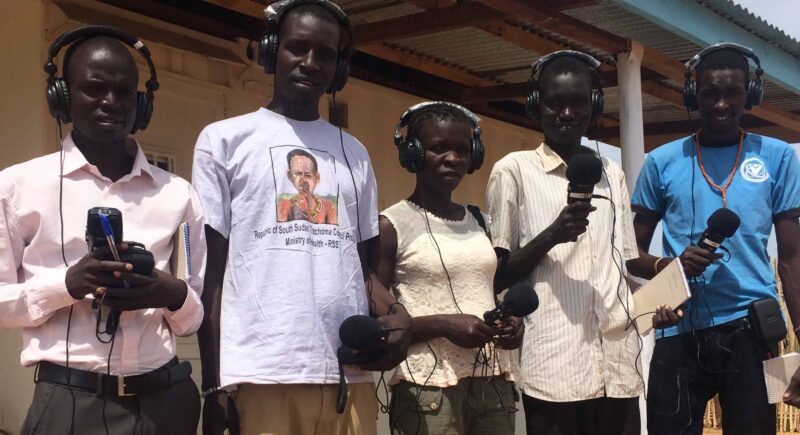Amidst global trends of closing civic space, heightened censorship and an increasingly polluted information environment, the production of credible journalism is an increasingly dangerous job, and more vital than ever.
Recognising this, the UK Foreign Office has launched a Media Freedom campaign, a key moment of which will be a conference co-hosted with the Canadian Government in London July 10-11, 2019.
The Foreign Affairs Select Committee, which examines the expenditure, administration and policy of the Foreign Office, is holding an inquiry into the campaign. Rosie Parkyn, Internews Director of Programmes, gave oral evidence to this inquiry on May 21, 2019, on a panel which included Michelle Stanistreet, General Secretary of the National Union of Journalists, and Scott Griffen, Deputy Director of the International Press Institute.
In her responses, Parkyn welcomed the attention brought to media freedom, noting that the high-profile cases which break through to public consciousness are only the tip of the iceberg.
“What we would really like to stress is that there are thousands of journalists who are working under these conditions, under conditions of constant harassment and threat, who we’re not hearing about at all,” said Parkyn. “That harassment is taking place offline, online, in the most sort of local circumstances. So we know we’re working with journalists, for example, who are threatened by the police and asked to dig their own graves. We have to reflect on the number of investigations and stories that just go untold because of the sense of the pervasive threats that are there and leads to a kind of self-censorship whereby fewer and fewer journalists are actually willing to step forward and play their role.”
Further, she noted that independent media is further undermined by increasingly draconian legislation and collapsing business models, which exacerbate the pressure already levied by power holders who can control the message by controlling advertising revenue.
Parkyn acknowledged the importance of advocacy around these issues, and the role of the UK Foreign Office in demanding an end to impunity for crimes against journalists and other practices which limit freedom of expression such as internet shutdowns, using diplomatic channels to reassert norms and standards, and lobby for the proper implementation of good legislation where it exists.
Beyond government-led advocacy and diplomatic efforts, Parkyn argued that approaches aimed directly at journalists and media outlets have a role to play. These include investments in scaling up tried and tested digital and physical security training and technical support which enables independent media to increase audience share and engagement, diversify its revenue base and move further towards financial sustainability. Parkyn encouraged the Foreign Office to consider these programmatic elements when developing a strategy for the campaign whose impacts endure beyond the conference.
In addition, she recognised the significant efforts to support independent media already undertaken by DFID, and the number of donor governments already active in this space. Parkyn urged closer collaboration and coordination as offering the best hope of tackling one of the major global issues of our time with the urgency required.
(Banner photo: Broadcast journalists in front of radio studio Singaita 88.3 FM in South Sudan. Credit: Internews)
